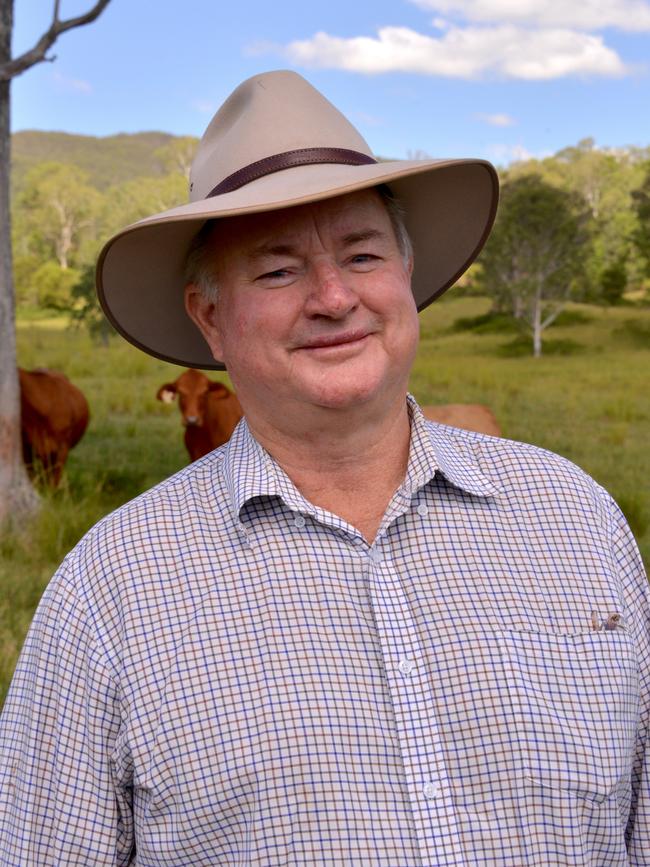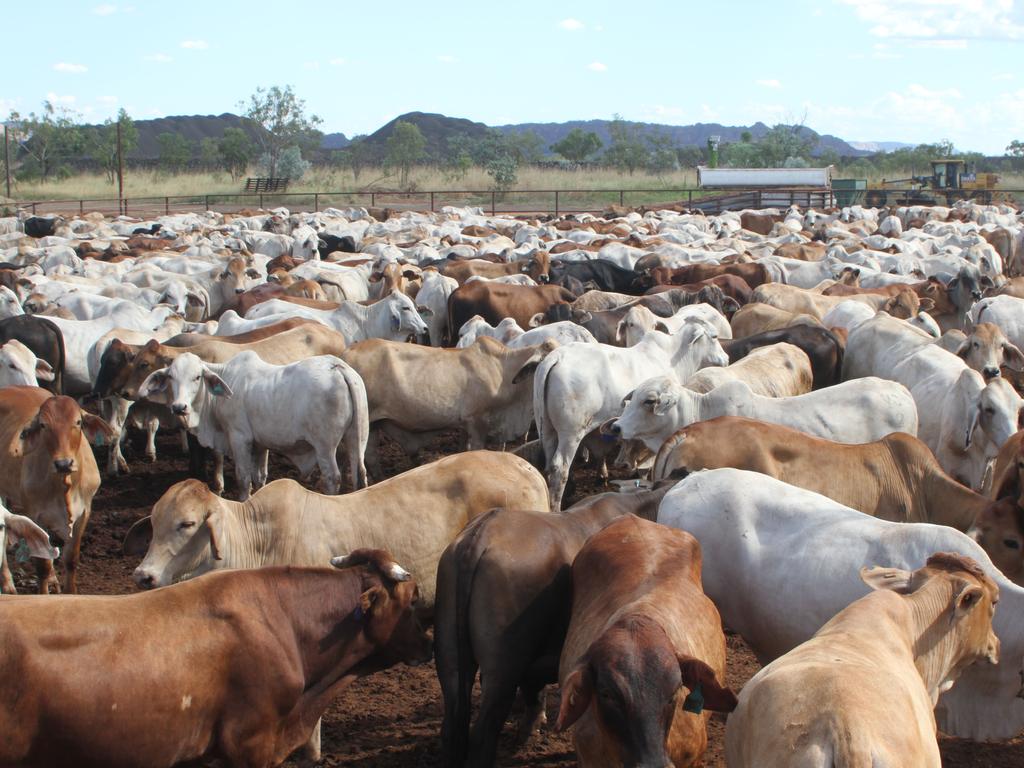British consumers primed for a taste of tariff-free Australian beef
British consumers struggling with record cost-of-living pressures will enjoy accessing Australian beef from June 1 – without what equates to a 20 per cent tax.
Teaching the Brits that Australia can track beef provenance and giving them a taste for highly marbled wagyu are among the tasks for an upbeat cattle industry gearing up for tariff-free access to the British market from next month and seeing growth from critical markets such as South Korea and China.
Cattle Association chair David Foote said Brits struggling with record cost-of-living pressures would enjoy accessing Australian beef from June 1 – without what equates to a 20 per cent tax – once they became used to the different flavour and unique story of cattle from down under.
“The UK has been quite passionate for a long time about telling the story along the way of each piece of meat,” said Mr Foote, who represents grass-fed cattle and believes they have a great tale for customers. “We have a climate where our animals comfortably live outside all year round. It’s the blue sky, white clouds and green grass, so it has a unique provenance.”
From June 1 a new trade agreement kicks in with the UK that takes beef exports from 3761 tonnes at a 12 per cent tariff plus £2.54 per kilogram, to having free trade for up to 35,000 tonnes in year one, and up to 110,000 tonnes by year 10.
Getting the UK used to Australia’s highly popular wagyu exports may take some time. For instance, last year Australia shipped only 741 tonnes to the UK out of the 2 million tonnes of carcass beef on average that it produces, but Mr Foote said he believed this would also be a growth industry.
“Across Europe it’s still muscle meat without marbling that’s the driver of their economy, so wagyu is all a bit new,” Mr Foote said. “But then it was pretty new here in Australia 10 years ago, and it’s certainly swamped the food scene now because it’s delivering a value proposition.
“But it might not just be the white tablecloth (diners), but the general population in the UK that will be buying Australian beef, at places like Tescos or Marks & Spencer. We have beef for every menu and every consumer level.”
Producers will be hoping the opportunity translates to sales. The Australian cattle herd is currently at its highest level in nine years, at 28.8 million head, which means the nation has about 2 million more cows than people.

Consolidated Pastoral Company chief executive Troy Setter said the UK imported about $2.3bn worth of beef, and Australia currently had 0.8 per cent market share due to the restrictive tariffs, but he said he believed the strongest chance for sales was in the high-end dining market.
“It’ll be predominantly the expensive stuff because they will be able to get grinding meat of a similar quality a lot closer from other countries,” Mr Setter said. “I think it will be the high-value branded beef of choice cuts, both wagyu and grass-fed, that will have a place over there.”
The cost of shipping to the UK equates to about 52c per kilogram, compared to 60c for the US east coast.
“I think it will be very competitive because of our distance to get to their market and production restrictions that will apply to the properties of origin,” Mr Setter said.
“The more markets Australia has access to, the better … but there will need to be substantial promotion and marketing, and we will need the terms of trade to align both from a cost and currency point of view,” he added.
Listed agricultural company Elders said earlier this week that it expected “softer” cattle and lamb prices would contribute to an expected fall in full year earnings. Meanwhile, Australia’s biggest wagyu producer, Australian Agricultural Company will announce its profit on Thursday.
AACO CEO David Harris and Mr Setter – who runs the largest private beef producer, will give further detail about their market expectations at The Australian’s Global Food Forum in Melbourne next week.
Rabobank’s annual seasonal outlook, also released this week, was more upbeat than the messaging from Elders, reporting that while prices might return to “more normal” market conditions they still remain near historic highs.
Rabobank said it expected prices would remain strong, with more stable pricing throughout the year.
It’s a forecast that appears to be backed up by levels of demand expected by Meat & Livestock Australia (MLA).
MLA regional manager Japan & Korea, Scott Walker, said that Japan, Korea, US and China are the main export markets for Australian beef and “continue to be significantly important.”
“While Covid was a challenging period for many, each market is showing either stability of demand, projected growth opportunities or growth,” Mr Walker said.
The South Korean market was Australia’s second-largest export market behind the US for Australian beef in March, according to an MLA commissioned report.
“Australian beef is one of the most powerful and recognised Australian brands in the Korean market,” Mr Walker said. “Australia supplies the Korean market with grass-fed, grain-fed, organic, as well as a strong wagyu presence.”
Australia is now the world’s biggest wagyu exporter, and exports some 200,000 tonnes of beef – across all types – to Japan each year.
Tansy Harcourt travelled to South Korea as part of the Walkleys 2023 fellowship.






To join the conversation, please log in. Don't have an account? Register
Join the conversation, you are commenting as Logout